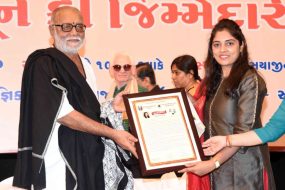
Abdus Salam, (born Jan. 29, 1926, Jhang Maghiāna, Punjab, India (now in Pakistan died Nov. 21, 1996, Oxford, Eng.), Pakistani nuclear physicist who was the corecipient with Steven Weinberg and Sheldon Lee Glashow of the 1979 Nobel Prize for Physics for their work in formulating the electroweak theory, which explains the unity of the weak nuclear force and electromagnetism.
In 1979, Pakistani scientist Abdus Salam won the Nobel Prize for physics. His life’s work was key to defining a theory of particle physics still used today, and it laid the groundwork for the 2012 discovery of the Higgs boson the particle responsible for giving all other particles mass.
Contributions:
Salam worked on the unification of these forces, and successfully showed that weak nuclear forces and electromagnetic forces could be converted into each other the ‘electroweak unification theory’ for which he was awarded the Nobel Prize in Physics.
Salam was the first Pakistani to win a Nobel, and his victory should have been a historic moment for the country. But instead, 40 years on, his story has largely been forgotten by the country in which he was born in part because of the religious identity he held so dear.










